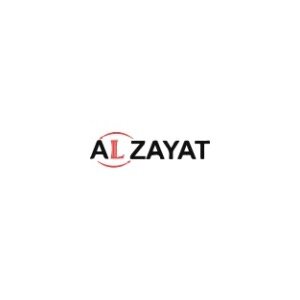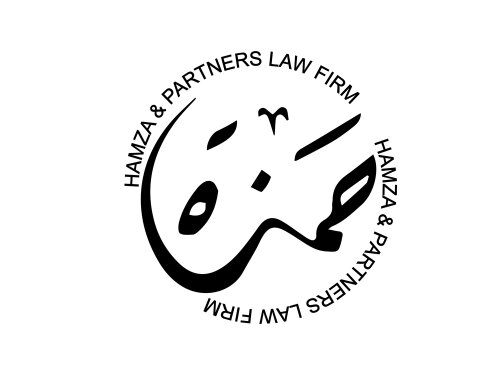Best Project Finance Lawyers in Cairo
Share your needs with us, get contacted by law firms.
Free. Takes 2 min.
List of the best lawyers in Cairo, Egypt
About Project Finance Law in Cairo, Egypt
Project finance in Cairo, Egypt, refers to the legal and financial structuring of large-scale projects where the project's assets and revenues are used as collateral for financing. This model is typically utilized for infrastructure initiatives such as energy plants, transportation systems, industrial complexes, and public-private partnerships. The field combines elements of commercial, banking, construction, corporate, and securities law to enable developers, lenders, and investors to successfully launch complex and capital-intensive projects within Egypt’s rapidly developing market.
Why You May Need a Lawyer
There are several situations where engaging a lawyer experienced in project finance can be crucial. Common examples include:
- Structuring agreements between multiple parties, including lenders, contractors, government bodies, and private investors
- Conducting due diligence to identify and resolve legal, regulatory, and financial risks
- Drafting and negotiating finance documents, such as loan agreements and security packages
- Ensuring compliance with Egyptian regulations and international best practices
- Managing land acquisition, zoning, permits, and licensing procedures
- Resolving disputes between stakeholders or with regulatory authorities
- Advising on project take-off and closure, including exit strategies
An experienced project finance lawyer helps ensure your project is legally secure and financially viable, minimizing risks and unforeseen costs through all project phases.
Local Laws Overview
Project finance in Cairo, Egypt, is governed by a combination of local laws and regulations. Key considerations include:
- Public-Private Partnership (PPP) Law: Law No. 67 of 2010 outlines the rules for partnerships between the government and private sector in infrastructure and public utilities projects. It regulates tender processes, contract terms, and dispute resolution.
- Investment Law (Law No. 72 of 2017): Encourages investment in strategic sectors with tax benefits and streamlined procedures for international and local investors.
- Banking and Finance Regulations: The Central Bank of Egypt oversees lending activities, currency controls, and security interests related to project financing, with particular rules on foreign loans and repatriation of profits.
- Environmental Laws: Environmental Impact Assessments (EIA) are mandatory for major projects to ensure compliance with environmental standards.
- Employment and Labor Laws: Hiring practices, labor rights, and workplace standards must be considered in project agreements and operations.
- Property and Land Laws: Issues related to land acquisition, property rights, zoning, and registration can impact project feasibility and timelines.
Various ministries, such as the Ministry of Finance, Ministry of Investment, and relevant sector ministries, play roles in granting approvals and overseeing project development.
Frequently Asked Questions
What types of projects are commonly financed through project finance in Cairo?
Large infrastructure projects such as power plants, renewable energy facilities, roads, bridges, water treatment plants, and public-private partnership initiatives are common candidates for project finance in Cairo.
Who are the typical parties involved in a project finance transaction?
Key parties often include project sponsors or developers, lenders (banks or financial institutions), contractors, governmental bodies, suppliers, and, in some cases, export credit agencies.
What is the main advantage of using project finance?
The main advantage is limited recourse financing, where lenders' claims are generally confined to the project's assets and cash flow rather than the sponsors’ broader balance sheets. This approach spreads risks among participants.
Is foreign investment allowed in Egyptian project finance?
Yes, foreign investors are encouraged under Egypt's Investment Law, and the country actively promotes international involvement in large-scale projects, especially within designated free zones and through PPP frameworks.
What are the key legal documents required for a project finance transaction?
Essential documents typically include the loan agreement, security documents, sponsor guarantees, project contracts (such as engineering, procurement, and construction contracts), and governmental approvals.
What regulations control the repatriation of profits for foreign investors?
The Investment Law and Central Bank regulations facilitate the free transfer and repatriation of profits, dividends, and principal capital, provided all legal requirements are met and appropriate approvals are obtained.
How are disputes resolved in project finance deals in Egypt?
Disputes can be settled by Egyptian courts or, more commonly in project finance, through arbitration under international rules such as the International Chamber of Commerce or Egyptian Arbitration Law.
What is the role of the government in project finance?
The government often participates as a regulator, contract party in PPPs, or provider of guarantees and incentives. Various ministries may be involved based on the project’s sector and scale.
Are environmental approvals required?
Yes, Environmental Impact Assessments and other environmental permits are generally mandatory for significant projects to ensure compliance and avoid operational disruptions.
How long does it typically take to close a project finance transaction?
The process can vary widely but commonly takes several months to a year, depending on the project's complexity, regulatory approvals, due diligence, and negotiation of key contracts.
Additional Resources
For further information and support regarding project finance in Cairo, the following resources are valuable:
- Ministry of Finance: Provides guidelines and oversight for state-related finance and PPP projects.
- General Authority for Investment and Free Zones (GAFI): Main body responsible for investment processes, incentives, and regulatory support for investors.
- Central Bank of Egypt: Regulates banking and finance sectors, relevant to currency exchange, lending, and security interests.
- Egyptian Financial Regulatory Authority (FRA): Oversees non-banking financial transactions, including project-related capital markets activities.
- Egyptian Environmental Affairs Agency (EEAA): Handles Environmental Impact Assessments and other green compliance requirements.
- Egyptian Arbitration Center: Offers dispute resolution services for commercial and project finance disputes.
Next Steps
If you are planning or considering a project that requires complex financing in Cairo, Egypt, it is advisable to consult with a lawyer who specializes in project finance. Here are practical steps to follow:
- Collect comprehensive documentation about your proposed project, including feasibility studies, business plans, and relevant permits.
- Identify the key stakeholders in your venture, including business partners, lenders, and potential contractors.
- Research and shortlist law firms or lawyers with established experience in project finance transactions in Egypt.
- Schedule consultations to discuss your project’s specifics, ask about their experience, and clarify fees and timelines.
- Work closely with your chosen legal advisor to address all regulatory, contractual, and compliance considerations for your project.
- Stay informed on any changes to local laws and regulations that might impact your project's finance structure or approvals.
Early legal engagement can reduce risks, control costs, and improve the chances of successfully closing and operating your project.
Lawzana helps you find the best lawyers and law firms in Cairo through a curated and pre-screened list of qualified legal professionals. Our platform offers rankings and detailed profiles of attorneys and law firms, allowing you to compare based on practice areas, including Project Finance, experience, and client feedback.
Each profile includes a description of the firm's areas of practice, client reviews, team members and partners, year of establishment, spoken languages, office locations, contact information, social media presence, and any published articles or resources. Most firms on our platform speak English and are experienced in both local and international legal matters.
Get a quote from top-rated law firms in Cairo, Egypt — quickly, securely, and without unnecessary hassle.
Disclaimer:
The information provided on this page is for general informational purposes only and does not constitute legal advice. While we strive to ensure the accuracy and relevance of the content, legal information may change over time, and interpretations of the law can vary. You should always consult with a qualified legal professional for advice specific to your situation.
We disclaim all liability for actions taken or not taken based on the content of this page. If you believe any information is incorrect or outdated, please contact us, and we will review and update it where appropriate.
















